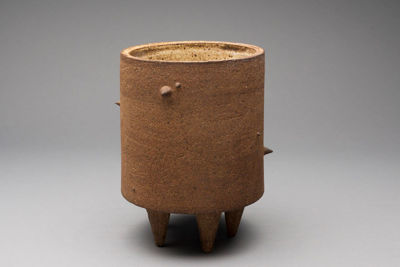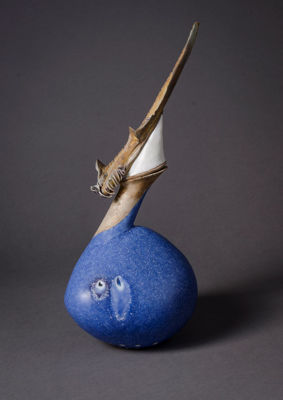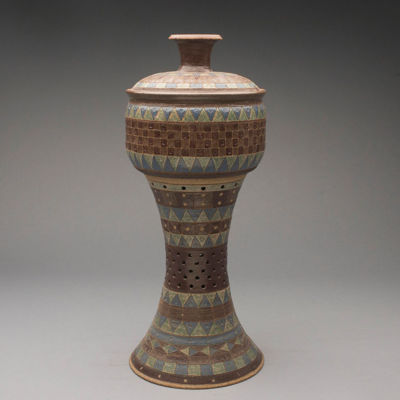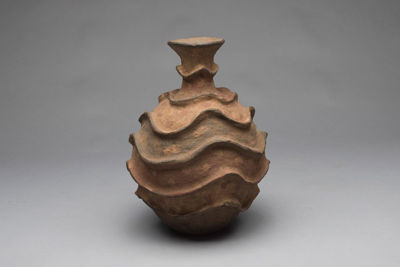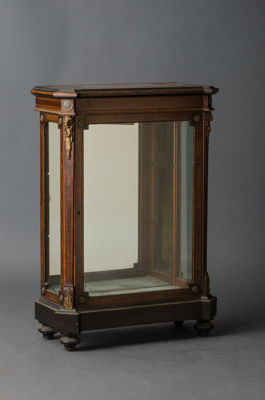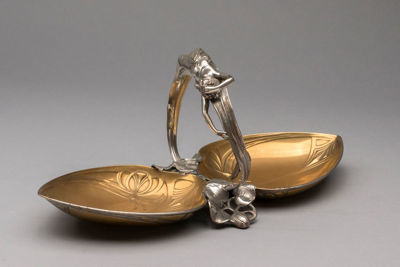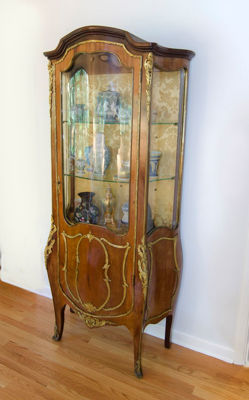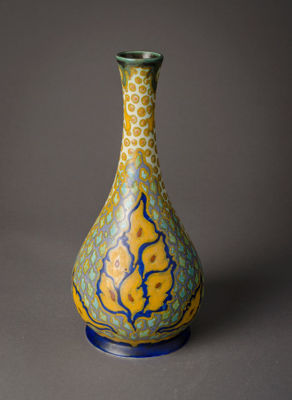Decorative and Design
Title: Vessel
Swindell’s miniature ceramics explore a preciousness of object, the artist creating vessels at a reduced scale and with a delicacy and softness that attenuates each pot down to a natural, almost shell-like form. This sensation, in part, is created through the use of a porcelain body with paper-thin wheel-thrown walls (given residual strength through a high temperature firing) onto which Swindell applies varieties of textural depth and blushing colour glazes. Within this set the biological motif is undermined by a curious unfamiliarity and sense of exoticism — the decorative elements rooted in a fantasy that bridges abstraction with the familiar organic patterns, and finds an particular intensity in the otherworldly imagination and conveyed sense of movement.
Title: Vessel
Having made the early transition from neurosurgeon to ceramicist after being introduced to the practice by a patient, Cliff Lee’s thrown vessels have developed to combine a precise eye and technical skill with gentle, nature-inspired form — as with the seed or fruit-like shape of this porcelain vessel that gently curves and tapers to a delicate stem. The Chinese Song dynasty remains a strong influence on the overall styling and poetic influence of the vessel, and Lee is credited with rediscovering several previously lost Chinese glaze techniques that give his ceramics such an intense colour and lustre.
Title: Vessel with raised linear waves
Impressive terra cotta vessel, Rwanda. With raised linear waves accented with red, white and black pigments. Overall good condition with signs of age and handling.
Title: Vitrine in Louis XV-Style Bombe
Vitrine with Gilt-bronze mounts, central foliate cartouche atop serpentine crest, bombe front.
Title: Vlam Vase
Gouda is a style of Dutch pottery named after the city of Gouda. Gouda pottery gained worldwide prominence in the early 20th century and remains highly desirable to collectors today. Gouda pottery is diverse and visually distinctive in appearance, typically illustrated with colourful and highly decorated Art Nouveau or Art Deco designs. Four vases: Laurie (1923), Mary (1923), Vlam (1921) and bottle-shaped vase with slender neck (c.1925)
Title: Wall Mount Cane Holders
French, wall-mount cane holders, group of eight, cast metal, two hold six canes, five hold four canes and one holds three canes, largest: 17 1/2"w x 3 1/2"d
Title: Water Ewer in Black Basalt
Two Wedgwood Black Basalt Water Ewers, England, 19th century, each with Triton seated atop the shoulder and modeled holding the horns of a marine monster below the spout, foliate swags to either side, impressed marks, ht. 15 1/2, 15 3/4 in. Provenance: Property of the Saint Louis Art Museum, Sold to benefit the acquisition fund. Each in very good condition throughout with no evidence of any cracks, chips or restorations.



